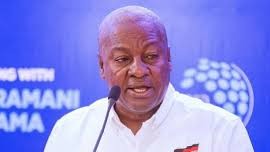The Director-General of the Ghana Maritime Authority (GMA), Dr. Kamal-Deen Ali, has called for enhanced collaboration between Ghana’s Maritime and aviation sectors to improve operational efficiency and safety, particularly in search and rescue operations.
Speaking during a familiarization visit by the Parliamentary Select Committee on Roads and Transport on Wednesday, May 7, Dr. Ali emphasized the interconnected nature of the two sectors, noting that over 70 per cent of the world’s surface is covered by water.
Dr. Ali stressed the critical need for coordinated efforts between the GMA and the Ghana Civil Aviation Authority (GCAA), especially in emergencies involving aircraft over water.
“If there is any disaster involving an aircraft at sea, it calls for intense collaboration between us and Civil Aviation,” he noted.
He explained that aircraft often chart flight paths over water to optimize travel time, further necessitating maritime involvement during emergencies.
The Director-General pointed out that the GMA’s mandate goes beyond Ghana’s territorial waters, covering a vast search and rescue region extending as far as Liberia.
However, he expressed concern over the lack of well-defined Standard Operating Procedures (SOPs) between the GMA and GCAA.
“What has been the case is that we and Civil Aviation have not developed that strong relationship of working,” Dr. Ali said, calling for daily communication and joint protocols to ensure seamless coordination—especially in cases involving aircraft operations from ships.
Dr. Ali also discussed the broader responsibilities of the Ghana Maritime Authority, including oversight of Ghana’s maritime zones—from the 12-nautical-mile territorial seas to the Exclusive Economic Zone (EEZ).
He referenced the International Aeronautical and Maritime Search and Rescue (IAMSAR) framework, which encourages cooperation between the aviation and maritime sectors globally.
Beyond coastal oversight, Dr. Ali underscored GMA’s work on inland waterways, particularly the Volta Lake, which continues to face challenges from seaweed overgrowth. He revealed that the Authority has supplied skimmers to the Volta River Authority (VRA) to help manage the situation, although VRA has not financially contributed to their procurement or maintenance.
“We have good protocols in place, and they are handling the skimmers to help clear the seaweeds—but we still have to support them,” he said.
Dr. Kamal-Deen outlined a series of strategic initiatives aimed at improving Ghana’s maritime and inland transport systems, with an emphasis on job creation and economic development.
He acknowledged the financial limitations in expanding transport safety infrastructure on Volta Lake, as many inland boat operators lack the capacity to pay for services.
“As an agency of the Ministry of Transport, we are pursuing key initiatives such as promoting seafaring, expanding inland waterways, and developing postal transport. These are all part of efforts to drive employment and improve economic activity, especially in coastal and riverine communities,” he added.
Dr. Ali stressed the importance of continued collaboration with Parliament and the Ministry of Transport, to ensure the necessary legal and institutional support for the successful implementation of these initiatives – in alignment with President John Mahama’s national development vision.





















